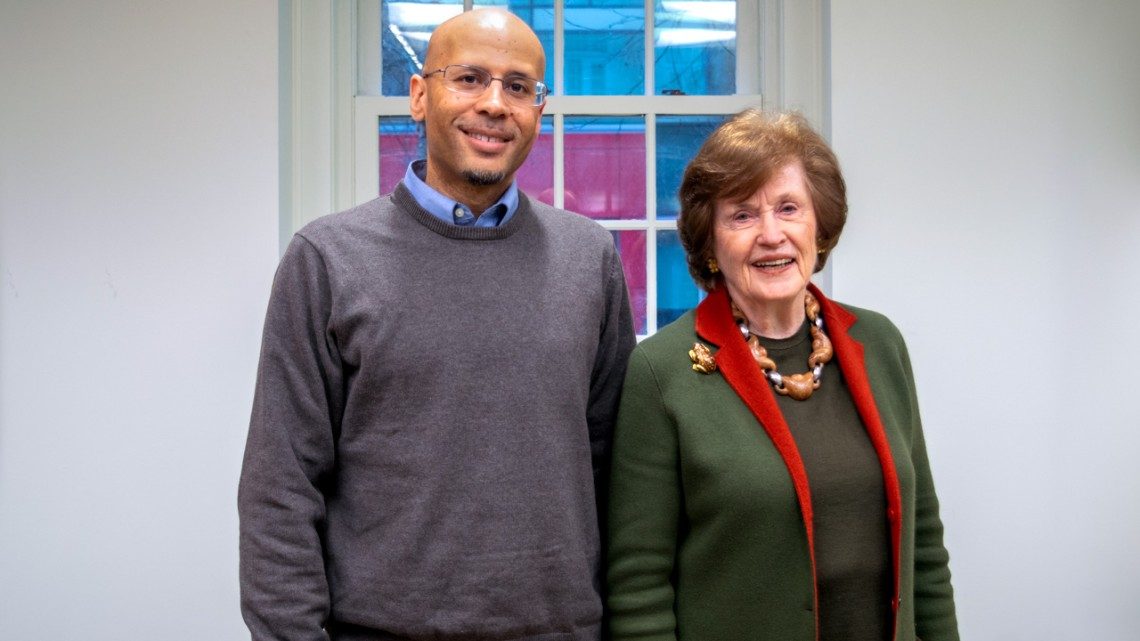In places like Ithaca, if your doctor wants to test you for conditions like anemia, they draw a blood sample and send it to a lab. It typically takes an hour or two to complete the test, and a day or two to return the results to you via your doctor. But if you’re like most people in the world—you don’t have easy access to either the doctor or the lab.
For most of the world’s inhabitants, getting an accurate anemia diagnosis involves travel, expense, and delays—obstacles that often prove prohibitive to getting treatment. According to a recent Lancet Diagnostics Commission report, nearly half of the world’s population does not have access to diagnostics for primary care, and more than 80% of people in low-income and lower-middle-income countries lack access to simple diagnostic tests.
Solving thorny problems like these is the focus of Saurabh Mehta’s work. He works to deliver game-changing science and technologies over the ‘last mile’ to end users. He does this both by advising guideline-setting agencies, such as the World Health Organization, and by serving community members directly.
Mehta, the Janet and Gordon Lankton Professor, directs Cornell’s Program in International Nutrition, and he is founding co-director of the university’s new Center for Precision Nutrition and Health based in the College of Human Ecology. Through this center, he implements a three-pronged strategy for change:
1) Establish the science: Mehta co-leads the research center for the Nutrition for Precision Health initiative, funded by a $25M grant from the National Institutes of Health (NIH). In a nutshell, precision nutrition recognizes that each individual responds differently to diet, and, therefore, one-size-fits-all recommendations don’t work. Center researchers are looking at why we respond differently to diet and disease, and working across disciplines (nutrition, biomedicine, artificial intelligence, data science, etc.) to develop algorithms that better predict individual responses to food and dietary patterns.
Why it matters: “Malnutrition—both over- and under-nourishment—is the single largest risk factor for poor health globally,” Mehta explains. Suboptimal nutrition accounts for one-third of all premature deaths in the US, from diseases like diabetes and obesity. Through the center, Professor Mehta is working to understand how nutrition can be used to improve health outcomes and how best to personalize nutrition for optimal health.
2) Build better tools: To find affordable point-of-care (PoC) technologies that can be implemented today, Mehta is co-leading a brand-new center called PORTENT (Point-of-Care Technologies for Nutrition, Infection, and Cancer for Global Health), funded by a $10M grant from NIH, Fogarty International Center, and the National Center for Complementary & Integrative Health. PORTENT’s co-leader is David Erickson, the Sibley College Professor of Mechanical Engineering, and Mehta’s longtime collaborator.
The pair invented the game-changing Cornell Nutriphone and Cornell Feverphone, enabling diagnosis of both nutritional status and certain infections in the field or in primary care. Now, they will work together with domestic and international partners to develop better PoC tools to deliver precision nutrition and health diagnoses.
Why it matters: As one of PORTENT’s first projects, Cornell collaborator Julia Finkelstein, associate professor of epidemiology and nutrition, will be developing a PoC device for screening and diagnosis of anemia and its causes. The new device will deliver results in 10-15 minutes with minimal infrastructure, cost, training, and sample volume—increasing access for 80% of the world’s population that is currently underserved.
3) Train the next generation: Mehta is also program director of the first training program on artificial intelligence supported by the NIH. The training program focuses on precision nutrition, and the leadership team for this effort spans Cornell’s Ithaca, Cornell Tech, and Weill Cornell Medicine campuses.
“We are excited to welcome the first batch of trainees and postdoctoral fellows and lead the nation in training of the next generation of nutrition and health scientists,” Mehta says. “We will make a concerted effort to involve students across the entire research spectrum—from basic science, to population health, to translational work,” he adds.
Mehta also connects with more than 300 alumni around the world through Cornell’s Program in International Nutrition. He is planning to launch a new ambassadors program that will pair Cornell students with alumni and those working in government, nongovernmental organizations, and industry, to give them hands-on experience working to improve nutrition and health outcomes.
Why it matters: To make an impact on a global scale, Mehta and his team need to amplify their efforts through training and outreach—to prepare the next generation of leaders.
Mehta says the breadth of the Division of Nutritional Science first attracted him to Cornell, offering the chance to work “across molecules to populations” to improve human health. What keeps him here is the alignment between his vision and Ezra Cornell’s dream “to do the greatest good.”
“A chance to mentor some of the brightest students, work with brilliant colleagues, and translate scientific discovery into action for the greater good is what has ultimately kept me at Cornell,” he observes.





